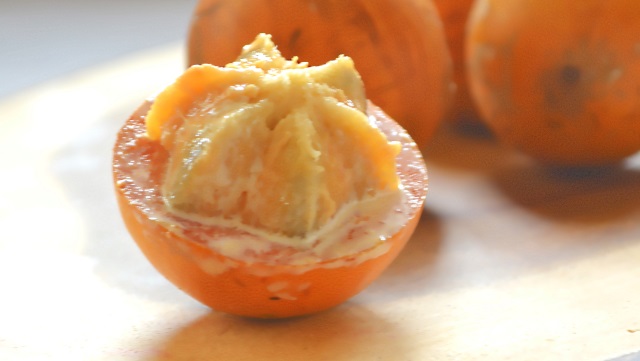Lemon
Lemons are a type of citrus fruit that are well-known for their sour taste and acidic properties. They are an excellent source of vitamin C, fibre, and various beneficial plant compounds that can help support cardiovascular health and prevent kidney stones and anaemia, among other benefits.
Lemons are commonly used in cooking and baking to add flavour to dishes. They are also used to make lemonade, a popular summer drink. Moreover, lemons have been used for centuries for their medicinal properties. For instance, they have been used to treat scurvy, a disease caused by vitamin C deficiency.

Chemical properties of lemon
One of the primary chemical properties of lemon juice is its low pH, which is highly acidic with a pH level of 2. This high acidity means that it has a high concentration of hydrogen ions, making it sour and capable of corroding metals.
Lemon juice also contains high levels of vitamin C, which is lost if the juice is left exposed to the air for a long period of time. Research suggests that lemon juice has certain antimicrobial properties and can stop the growth of aspergillus mold. This property of lemon juice seems to be tied to its citric acid content, which can break down the cell membranes of bacteria.
Lemons are rich in three organic acids: citric, malic, and ascorbic (AKA Vitamin C). Citric acid predominates. Suck on citric acid and you’ll think of lemons. The valuable biological activity of lemons is determined by their high content of phenolic compounds, mainly flavonoids (e.g., diosmin, hesperidin, limocitrin) and phenolic acids (e.g., ferulic, synapic, p-hydroxybenzoic acids). The essential oil is rich in bioactive monoterpenoids such as D-limonene, β-pinene, γ-terpinene
Health benefits of lemon
- Support Heart Health: Lemons are a good source of vitamin C, which is known to reduce the risk of heart disease and stroke. The fibre and plant compounds in lemons could also significantly lower some risk factors for heart disease.
- Help Control Weight: Lemons are often promoted as a weight loss food. Research shows that plant compounds in lemon extracts may help prevent or reduce weight gain in a number of ways. However, no studies confirm the weight loss effects of lemon compounds in humans.
- Prevent Kidney Stones: Citric acid in lemons may help prevent kidney stones by increasing urine volume and increasing urine pH, creating a less favourable environment for kidney stone formation.
- Boost Immunity: Vitamin C in lemons may help boost the immune system by increasing the production of white blood cells.
- Improve Digestive Health: The fibre in lemons may help improve digestive health by promoting regular bowel movements and preventing constipation.
- Protect Against Anemia: Anemia is a condition characterized by a lack of red blood cells or haemoglobin in the blood. Lemons are a good source of vitamin C, which can help improve the absorption of iron from plant-based foods.
- May Help Prevent Cancer: Some studies suggest that the plant compounds in lemons may have anti-cancer properties. However, more research is needed to confirm this.
How to use lemon
- Cooking and baking: Lemons can add flavour and acidity to many dishes, such as salads, sauces, marinades, desserts, and drinks. They can also be used to make lemonade, lemon tea, lemon curd, lemon meringue pie, and more. Lemons can also help prevent the browning of fruits and vegetables, and enhance the absorption of iron from plant sources
- Cleaning and deodorizing: Lemons have antibacterial and antiseptic properties that can help disinfect and remove stains from various surfaces, such as microwaves, copper pots, cutting boards, and faucets. They can also help eliminate odours from refrigerators, garbage disposals, laundry, and hands
- Beauty and health: Lemons can be used to make natural beauty products, such as face masks, toners, scrubs, and hair treatments. They can also help treat common ailments, such as sore throat, cold, fever, and nausea. Lemons are rich in vitamin C, which can boost the immune system and promote skin health.
- Crafting and decorating: Lemons can be used to make creative and fun projects, such as lemon candles, lemon soap, lemon wreaths, lemon garlands, and lemon centrepieces. They can also be used to make lemon essential oil, lemon salt, lemon vinegar, and lemon sugar.
The side effect of lemon
- Tooth Decay: The acidic content in lemons can cause erosion of tooth enamel, cavities, stained teeth, and other dental problems. One way to overcome this side effect is to always take lemon juice mixed with other food items.
- Negative Effect On Skin: People who have dry and flaky skin should avoid using lemons as it will make their skin even more dry. Dark spots are another skin condition for which the usage of lemon is suggested. Again, this may not have a positive result as applying it on pimples will cause a burning sensation and will cause rashes or reddening of skin.
- Heartburn: This usually happens when the oesophagus gets affected due to stomach acid. People suffering from a case of heartburn will usually have chronic pain with a burning sensation in their chest or throat. So if you are already having heartburn, using lemons can cause more harm.
- Ulcers And GERD: Ulcers and GERD which stands for Gastro Esophageal Reflux Disease are also side effects of consuming lemon in excess quantity. The acidic content increases the production of acid and in turn, makes your stomach highly acidic. Vomiting, sore throat, regurgitation, etc
Recommendations
Lemon is a citrus fruit that is widely used in cooking and beauty treatments. While it has many benefits, there is no specific recommended dosage for lemon. However, daily consumption of 120 mL of concentrated lemon juice (containing 5.9 g of citric acid) diluted in 2 L of water was used in a very small study to evaluate effects on urinary metabolic parameters and stone formation in patients with hypocitraturic calcium nephrolithiasis.
Lemons are primarily used for their vitamin C nutritional value and potassium content. Epidemiological studies associate the intake of citrus fruit with a reduction in the risk of various diseases. Antioxidant, antimicrobial, and anticancer activities have been investigated. Small clinical trials have suggested potential roles in hypocitraturia calcium nephrolithiasis, aromatherapy, and reducing glycemic response.
Importance of the lemon Peel
Lemon peel is the outermost layer of the lemon fruit that is often discarded after the juice and pulp are extracted. However, lemon peel is a rich source of fibre, vitamin C, and various beneficial plant compounds that may provide numerous health benefits. Here are some of the potential benefits and uses of lemon peel:
- High nutritional value: Lemon peel is very nutritious, despite being eaten in small amounts. One tablespoon (6 grams) provides 3 calories, 1 gram of carbs, 1 gram of fibre, and 9% of the Daily Value (DV) of vitamin C. Additionally, it contains small amounts of calcium, potassium, and magnesium.
- May support oral health: Lemon peel contains antibacterial substances that may inhibit the growth of microorganisms responsible for oral diseases, such as dental cavities and gum infections.

- High in antioxidants: Lemon peel is high in antioxidants, including D-limonene and vitamin C. Antioxidants are plant compounds that prevent cellular damage by fighting free radicals in your body. Intake of flavonoid antioxidants like D-limonene is linked to a reduced risk of certain conditions, such as heart disease and type 2 diabetes.
- May help fight cancer: Some studies suggest that the bioactive compounds in lemon peel, such as limonene and salvestrol Q40, may have anti-cancer properties. However, more research is needed to confirm this.
- May improve skin health: Lemon peel contains vitamin C, which is essential for collagen synthesis and skin health. It may also help reduce hyperpigmentation, dark spots, and acne scars.
- May aid digestion: The fibre in lemon peel may help improve digestive health by promoting regular bowel movements and preventing constipation.
- May help reduce inflammation: Some studies suggest that the plant compounds in lemon peel may have anti-inflammatory properties, which may help reduce inflammation and pain in conditions such as osteoarthritis and rheumatoid arthritis










Review Lemon.
You must be logged in to post a review.